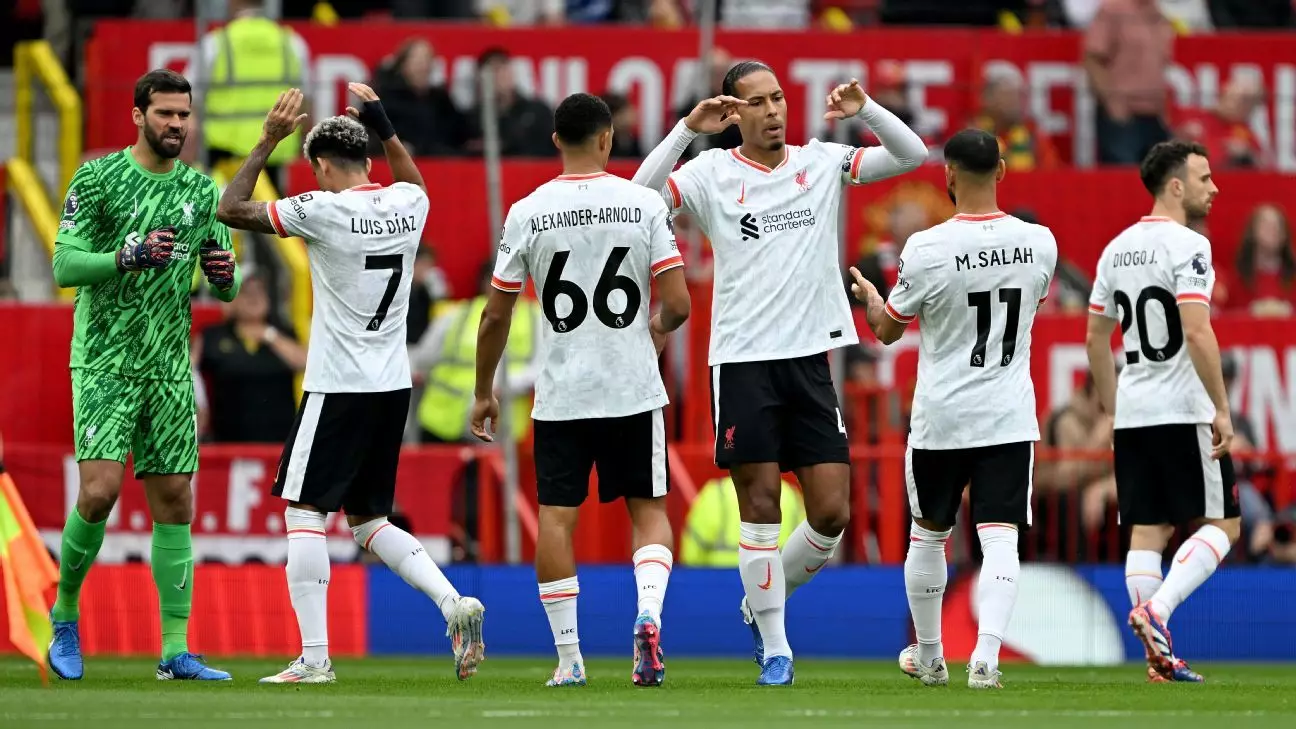As the clock ticks down toward January 1, 2025, Liverpool finds itself teetering on the precipice of a significant crisis. The club is at risk of losing their star trio—Mohamed Salah, Virgil van Dijk, and Trent Alexander-Arnold—without receiving a single penny in return. With less than 100 days left in the current contract cycle, the stakes couldn’t be higher. Each player brings unique value to the squad but, under the current circumstances, Liverpool’s management is now faced with a daunting dilemma regarding contracts and future prospects.
Salah, at 32 years old, is one of the top names in football today, while the 33-year-old van Dijk has solidified his status as a defensive titan. Trent Alexander-Arnold, although younger at 25, represents the future of the team with his evolving skills and homegrown passion for the club. Their collective contracts are set to expire at the end of this season, which not only enables them to negotiate with non-English clubs from the beginning of next year but also places immense pressure on Liverpool’s current management and their decision-making strategy.
The intertwining futures of Salah, van Dijk, and Alexander-Arnold create a precarious web for Liverpool’s leadership, particularly for Fenway Sports Group (FSG) and CEO Michael Edwards. While it’s common for large football clubs to withhold information regarding contract negotiations, the deafening silence surrounding these key players’ futures has generated uncertainty and anxiety among supporters.
The ramifications of allowing such contractual uncertainties to linger are profound. It has been reported that Salah and van Dijk have publicly expressed their discontent about the lack of ongoing discussions regarding contract extensions. For instance, Salah appeared candid when discussing the absence of contact from Liverpool’s management, stating, “Nobody at the club has spoken to me yet about a new contract.” This lack of communication lends itself to speculation and concern over the players’ commitment and the club’s willingness to retain their services.
The complexities of negotiating contracts for aging stars like Salah and van Dijk are markedly different from those pertaining to a rising talent such as Alexander-Arnold. The club must balance the potential drop in performance due to aging against the risk of a long-term commitment. Historical choices made by FSG—to let go of players like Sadio Mané and Roberto Firmino before any evident decline—have paid off in retrospect. However, Salah and van Dijk stand apart due to their iconic legacies and immense contributions on the pitch.
On the other hand, Alexander-Arnold’s situation is more straightforward and reflects the challenges facing the club in ensuring a successful long-term future. At 25, he is only just beginning to reach his prime years. The negotiators at Liverpool must recognize his value not only as a gifted player but also as a fan who embodies the spirit of the club. A lucrative long-term deal might be warranted, yet it carries an inherent risk—specifically, the resultant expectations that van Dijk and Salah would likely demand similar agreements.
The shadow of external clubs, particularly Real Madrid, looms over Liverpool as speculation regarding Alexander-Arnold’s potential move continues. His recent comments have only fanned these flames, hinting at a reluctance to dismiss a possible departure. The past experiences of homegrown players like Steve McManaman and Michael Owen illustrate the pitfalls of players leveraging contract negotiations towards greener pastures, and the supporters’ memories of such betrayals have not vanished.
Arne Slot’s critiques of Alexander-Arnold’s defensive consistency further complicate matters, signaling a potential rift in the coaching staff’s faith in him moving forward. If the club cannot settle a suitable agreement while boosting his morale, there could be a significant downside—a loss of both a vital player and a monetary return on investment.
To put it bluntly, Liverpool stands at a critical crossroads. As the deadline approaches, the urgency to finalize contracts grows exponentially. Time is no longer an ally for the club; every day that passes elevates tension both among players and supporters. The players hold powerful leverage, as they can either secure substantial contracts with Liverpool or seek opportunities elsewhere without restrictions.
For Liverpool, navigating these waters is not just about retention; it is also about the overarching vision for the club’s identity moving forward. The next several months will not only define the futures of Salah, van Dijk, and Alexander-Arnold but also profoundly shape the trajectory of Liverpool FC as they work to maintain their position as one of football’s elite clubs. The question remains: Will the club seize the opportunity and solidify its future, or will it face possible upheaval by allowing its stars to drift away?

